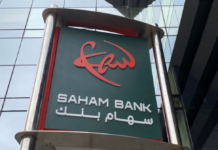Starting December 20, Morocco’s General Directorate of National Security (DGSN) is rolling out E-Police, a cutting-edge digital platform designed to modernize police administrative services. This initiative marks a significant leap forward, enabling citizens across the country to access a wide range of services online, streamlining what were once cumbersome procedures.
According to the DGSN, E-Police consolidates all police services into a single, user-friendly platform. Built to meet the highest e-government standards, it emphasizes efficiency, simplicity, and security. Advanced technologies embedded within the platform allow for quick response times, remote identity verification, and robust protection of personal data. These features underscore the DGSN’s commitment to leveraging innovation to enhance public services.
One of the portal’s flagship offerings is the digitization of the anthropometric record request process. Moroccan citizens can now submit their applications online using their electronic national identity cards. Once their identity is verified through the platform’s advanced digital tools, they can complete the process remotely. An electronic notification informs users when their document is ready, allowing them to collect it at a registration center of their choice. This streamlined, fully digital process drastically reduces waiting times and eliminates unnecessary travel.
In addition to anthropometric records, the portal provides services such as scheduling appointments to obtain or renew electronic national identity cards and registering for police recruitment exams. Over time, the DGSN plans to expand its service offerings, incorporating documents like residency certificates and more.
The launch of E-Police is just the beginning of an ambitious digital transformation in Morocco’s public safety sector. By introducing this platform, the DGSN reaffirms its dedication to creating a modern, accessible, and citizen-centric police service. The initiative reflects a broader commitment to placing technology at the heart of public administration, simplifying procedures, and enhancing the quality of services for all.





